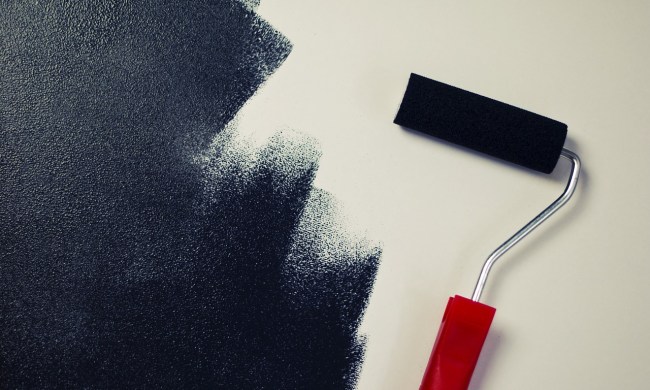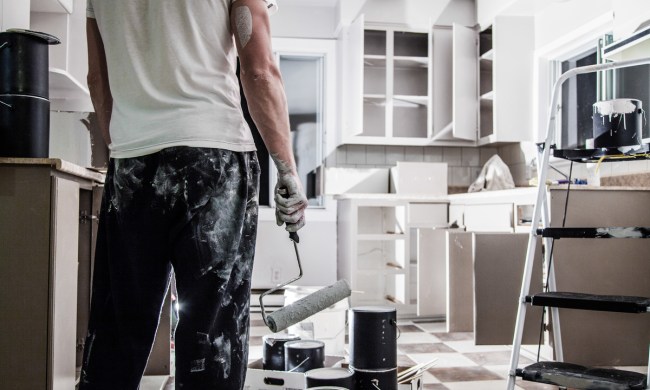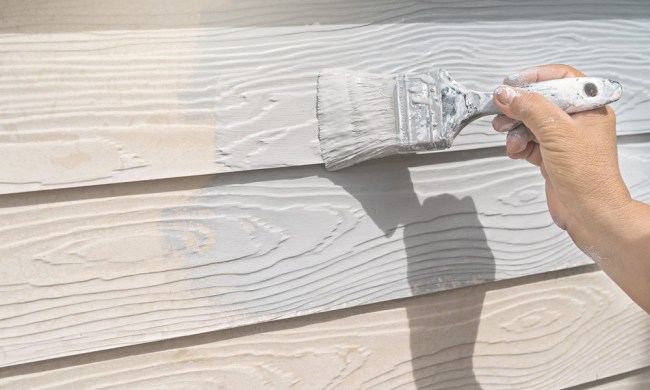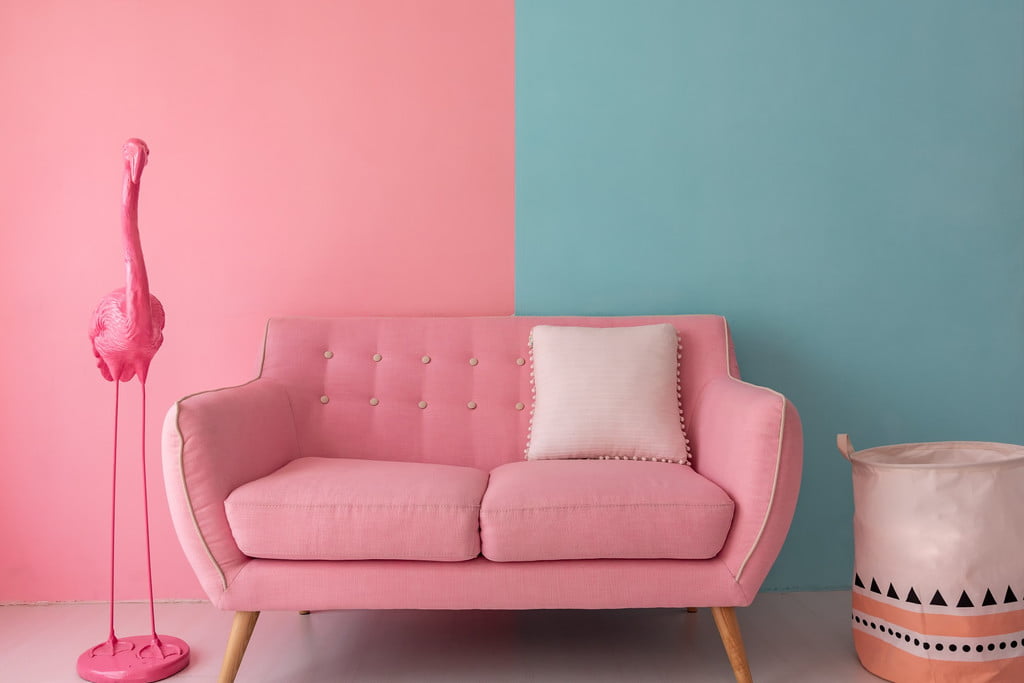
Repainting your home is one of the easiest and most inexpensive ways to transform your home. However, before you start poring over paint swatches and heading to your local hardware or paint store to buy your house paint primer and paint, there is one major decision you need to make: finish. Let’s talk about what paint finish is, how it will impact your painting project, and which you should choose when it comes to satin vs. eggshell paint.
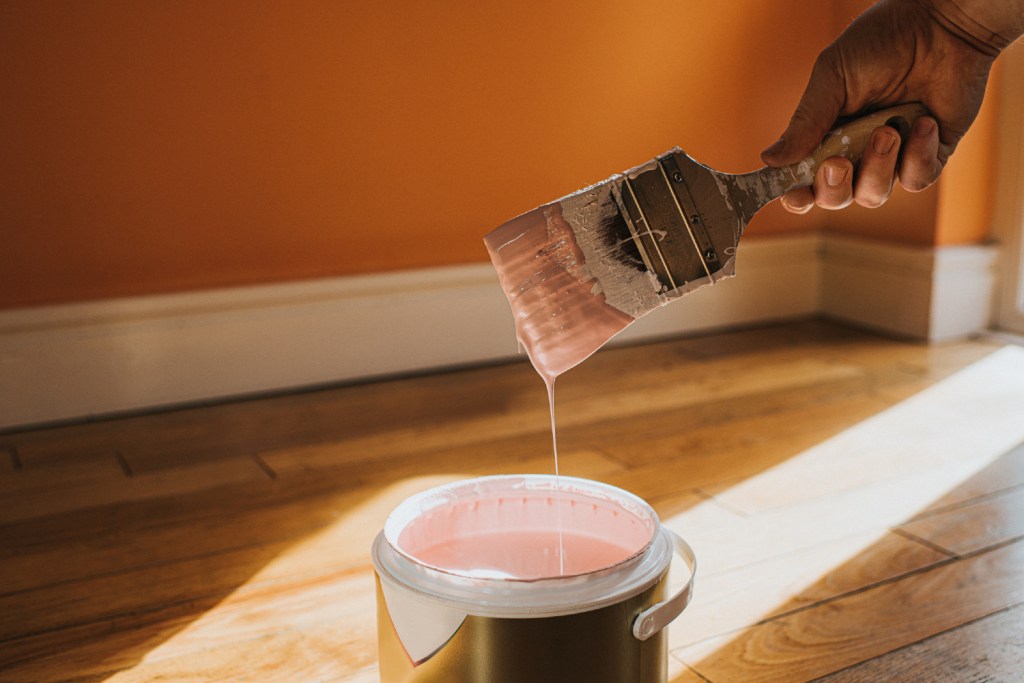
What is paint finish?
When we talk about paint finish, we’re referring to the texture and appearance of a painted surface after the paint has dried. Basically, it’s the final touch that determines the overall aesthetic and feel of the painted area. Paint finishes can vary in terms of sheen (glossiness), smoothness, and durability, and each type of finish has its own unique characteristics. Paint finish isn’t a one-size-fits-all situation, and the finish of the paint can make a big difference in how it looks.
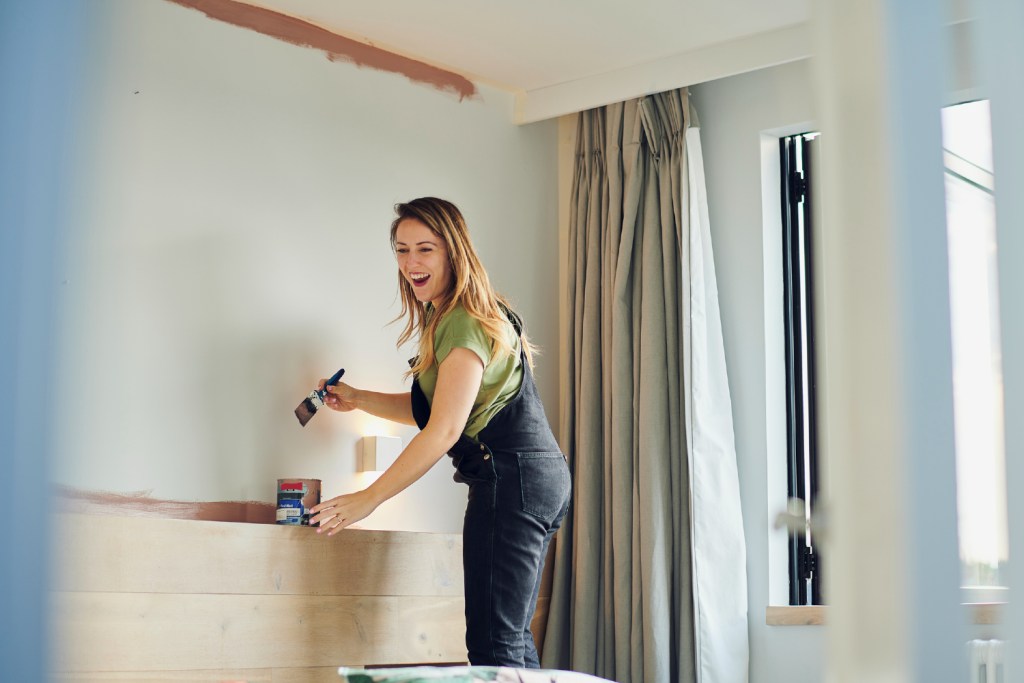
Satin vs. eggshell paint: What’s the difference?
There are numerous paint finishes available, and the most common is eggshell and satin, which fall in the middle of the matte-to-glossy sheen spectrum. But when it comes to satin vs. eggshell paint, which one is right for you and more specifically, the space you’re painting?
“Choosing the right finish is completely aligned with what you would like to accomplish in a particular space,” Luciana Fragali, owner of Miami-based high-end interior and architectural design firm Design Solutions, told 21Oak.
What is satin?
Paint with a satin finish leans more toward the glossy spectrum, explained Fragali. “Satin is slightly less shimmery than semi-gloss, and depending on the lighting in the room, it can appear to be both flat and glossy,” she said.
Satin paint has a number of other qualities you should take into consideration. For example, Fragali pointed out that it’s more reflective and more durable than eggshell. And while it’s less shimmery, it also has a slightly higher polish than eggshell.
It’s one of the easiest finishes to clean, making it a popular choice for areas in the home that see a bit of traffic, as well as for homeowners with pets and children.
What is eggshell?
Eggshell paint finish earns its name due to its texture and appearance, similar to that of your average eggshell. “Eggshell has slightly more luster than a flat finish, but you won’t be left with shiny walls,” explained Fragali.
It’s an excellent alternative to flat paint, as it resists stains better and can be wiped with a wet cloth.

Satin vs. eggshell paint: Things to consider
Satin and eggshell paint both serve their purposes in the home setting, and neither is better than the other. However, there is generally one that is a more suitable option, depending on your specific needs.
Satin is more durable and easier to clean than eggshell
While eggshell paint is easier to clean than flat paint, it is harder to clean than satin. Therefore, Fragali suggested using it in areas where it isn’t going to be on the receiving end of dirty hands or feet. People commonly use an eggshell finish in living rooms and dining rooms since these areas see some traffic, but not a ton of grime.
“Eggshell paint is best suited for areas such as ceilings, bedrooms, dining rooms, and living areas where there is not a lot of dirt buildup or traffic,” she pointed out. However, people still use it in bathrooms, kitchens, kids’ rooms, and other high-traffic areas, especially as an alternative to flat paint.
On the other hand, satin paint is an ideal option for painting in kitchens and other high-traffic areas. That’s because it is easy to clean with just a damp cloth because it has a glossier surface. Since it’s easier to clean, it also does better as a bathroom paint finish or when painting other high-moisture areas.
Eggshell is easier for DIYers
Satin paint has one major downfall — especially if you aren’t relying on a professional painter. “Satin paint will show any flaws in its application (i.e., brush strokes), so if you are a first-time DIY painter, you might consider hiring a professional for this or selecting another finish like eggshell,” she told us.
Overall, if your walls have bumps or imperfections, or if you make painting mistakes, an extra coat of eggshell can disguise them more easily than satin or high-gloss finishes. Since it has less reflectivity than satin, it also serves to dull the appearance of these imperfections.
Satin is better in small spaces
Another thing to consider is the size of the space. Fragali said that satin is often a better choice in tight or small spaces, as the slight gloss can offer depth that a flat finish cannot.
Eggshell is less expensive
Typically, for each step you go up in sheen — flat, eggshell, satin, semi-gloss, and high-gloss — you add $1 or $2 to the price per gallon. In the middle of the sheen spectrum, satin is still an affordable option — but not as affordable as eggshell.
Your preference matters
The last deciding factor should always be which of the finishes you like the most. Some people tend to gravitate toward eggshell as they prefer a flatter finish, while others appreciate a glossier look.

Where to use satin vs eggshell paint
Because satin and eggshell paints have different sheens, they can better serve certain rooms and situations. Here are some examples of which rooms best suit these paint finishes.
What rooms do better with a satin finish?
Satin finishes are best in high-traffic locations or rooms that require more durability and ease of cleaning.
Kitchens
The kitchen is a great place to use semi-gloss or satin sheens because it is a high-traffic, high-use room that sees plenty of splatters and spills. While most kitchens have backsplashes, a satin paint finish can be a great way to prevent your tile backsplash from appearing too shiny since satin sheens are a bit glossier than eggshell.
Bathrooms
Bathrooms are another great room to use satin paint finishes. Satin sheens are more durable, easy to clean, and typically more moisture-resistant than eggshell finishes.
Mudrooms
The mud room is a high-traffic room that sees lots of moisture, grime, and general usage. You’ll want a paint sheen that is easy to clean and moisture-resistant in this space.
Laundry rooms
Laundry rooms can do well with eggshell finish, but typically, satin finishes look best. The shinier gloss looks more cohesive with appliances, countertops, and backsplashes in a laundry room design.
Which rooms need an eggshell finish?
Rooms that require a soft, low-sheen, and smooth finish do best with eggshell paint.
Hallways
Hallways and other transitional spaces don’t need a lot of sheen. A shinier paint finish may overwhelm the space or invite odd glares depending on the lighting situation. This makes eggshell paint a better choice since it has low luster.
Foyer or entryways
Similarly, foyers and entryways look best with eggshell paint finishes. Like hallways, the lighting can be odd in these spaces, creating odd glares or sheens on the wall when using a glossier finish.
Living rooms
Living rooms may be high-traffic spaces, but the walls often aren’t prone to as many messes or splatters. These rooms also look best with a soft, smooth finish that provides comfort.
Bedrooms
Like living rooms, bedrooms need a low-profile paint finish that feels gentle and comforting. Eggshell paint finishes are great in these spaces because of their low sheen.
When it comes down to choosing your paint finish, the decision should be made on a case-by-case basis. Before making a choice, you need to consider your personal preference, the type of space you are working with, your desired outcome, and even who will be applying the paint. If you still can’t decide between a satin and eggshell finish, you can always call your local paint store or ask your painter for their opinion.

